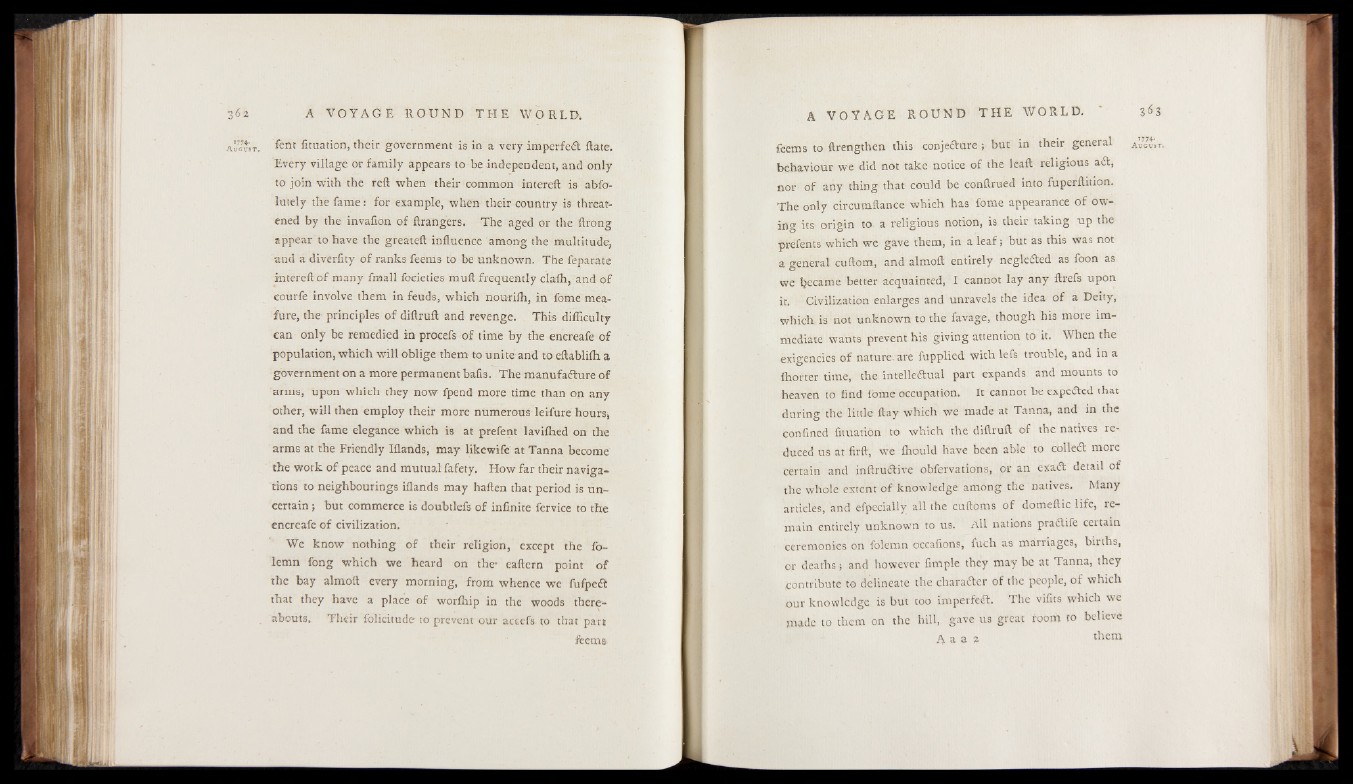
a|,7c7*'t_ fent fituation, their government is in a very imperfeCt Rate.
Every village or family appears to be independent, and only
to join with the reft when their common intereft is abfo-
lutely the fame: for example, when their country is threatened
by the invafion of ftrangers. The aged or the ftrong
appear to have the greateft influence among the multitude,
and a diverlity of ranks feems to he unknown. The feparate
intereft of many fmall focieties muft frequently claffi, and of
courfe involve them in feuds, which nourifh, in foine mea-
fure, the principles of diftruft and revenge. This difficulty
can only be remedied in procefs of time by the encreafe of
population, which will oblige them to unite and to eftablifli a
government on a more permanent bafts. The manufacture of
arms, upon which they now fpend more time than on any
other, will then employ their more numerous leifure hours,
and the fame elegance which is at prefent lavilhed on the
arms at the Friendly Iflands, may likewife at Tanna become
the work of peace and mutual fafety. How far their navigations
to neighbourings iflands may haften that period is uncertain
; but commerce is doubtlefs of infinite fervice to the
encreafe of civilization.
We know nothing of their religion, except the fo-
lemn fong which we heard on the* eaftern point of
the bay almoft every morning, from whence we fufpeCt
that they have a place of worfhip in the woods there1-
abouts, Their folieitude to prevent our accefs to that part
feems.
feems to ftrengthen this conjecture; but in their general amuI't.
behaviour we did not take notice of the leaft religious aCt,
nor of any thing that could be conftrued into fuperftition.
The only circumftance which has fome appearance of owing
its origin to a religious notion, is their taking up the
prefents which we gave them, in a leaf; but as this was not
a general cuftom, and almoft entirely negleCted as foon as
we became better acquainted, I cannot lay any ftrefs upon
it. Civilization enlarges and unravels the idea of a Deity,
which is not unknown to the favage, though his more immediate
wants prevent his giving attention to it. When the
exigencies of nature are fupplied with lefs trouble, and in a
(horter time, the intellectual part expands and mounts to
heaven to find fome occupation. It cannot be expected that
during the little ftay which we made at Tanna, and in the
confined fituation to which the diftruft of the natives reduced
us at firft, we fliould have been able to colleCt more
certain and inftruCtive obfervations, or an exaCt detail of
the whole extent of knowledge among the natives. Many
articles, and efpecially all the cuftoms of domeftic life, remain
entirely unknown to us. All nations praClife certain
ceremonies on folemn occafions, fuch as marriages, births,
or deaths; and however fimple they may be at Tanna, they
^contribute to delineate the character of the people, of which
our knowledge is but too imperfeCt. The vifits which we
made to them on the hill, gave us great room to believe
A a a s them